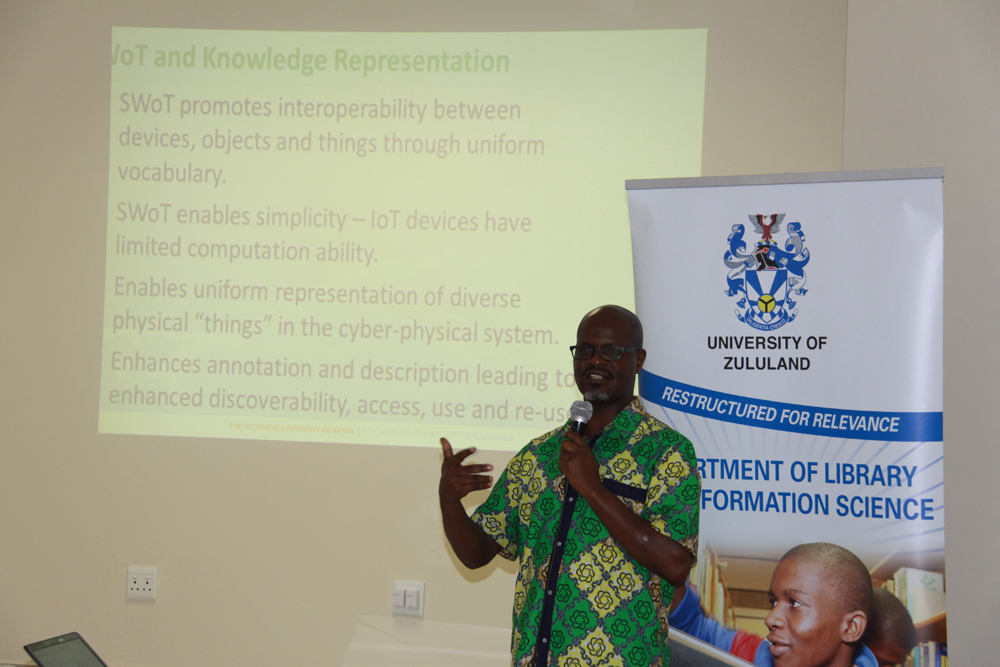Towards a Completely Digital World

“Technology plays a huge in everyday life. Information Technology is undeniably the future of the world.”
This was the bold prediction of Professor Tom Kwanya, an Associate Professor and acting Director at the School of Information and Communication Studies at the Technical University of Kenya.
Prof Kwanya was one of the keynote speakers on the first day of the 18th Information Studies (IS) Conference 2017 which commenced on Wednesday (6 September) at the iMvubu Lodge, Richards Bay. A staple research event of the Department of Information Sciences at the University of Zululand (UNIZULU), this year’s three-day event is themed Trends in the Management of e-content in the Digital Era.
Through the conference, several issues related to the general management and challenges of e-content such as evidence, trust, integrity as well as provenance of information and knowledge in the digital era in building an open and accountable society will be covered.
Titled Enhancing Knowledge Representation Through Semantic Web of Things, Prof Kwanya’s research-in-progress explores how real-world objects can be programmed to be part of the world wide web. “Knowledge Representation is the process of getting the knowledge that a human being has to do things or perform certain functions. My presentation looks at how that knowledge can be gathered so that a machine or device can do the same thing. The semantic web is a framework which enables the representation of that knowledge in terms of providing the language in which this is done, the protocols- so that a fridge can talk to a car for instance- and that there is adequate description of what each knowledge is so that it is possible to search and browse it on the web,” Prof Kwanya explained.
He elucidated that although such technology is not yet available in the Sub-Saharan African region, it is being exploited in certain parts of the world where smart cities have or are being developed.
The semantic web does, however, come with privacy challenges, Prof Kwanya said. “If, for instance, you have a smart TV; while you would be watching it, it would also be watching you,” he quipped.
The IS conference is intended to provide an international open forum for academics, students, researchers, knowledge and information managers and authorities as well as information and communication related professionals- largely from Africa- to converge, discuss and share knowledge and experiences on the conference theme with an emphasis on the progress made in Africa.
Other research papers which were surfaced on day-one were in the areas of radio astronomy, public/private partnerships as well as government law libraries.
– Naledi Hlefane














Leave a Reply